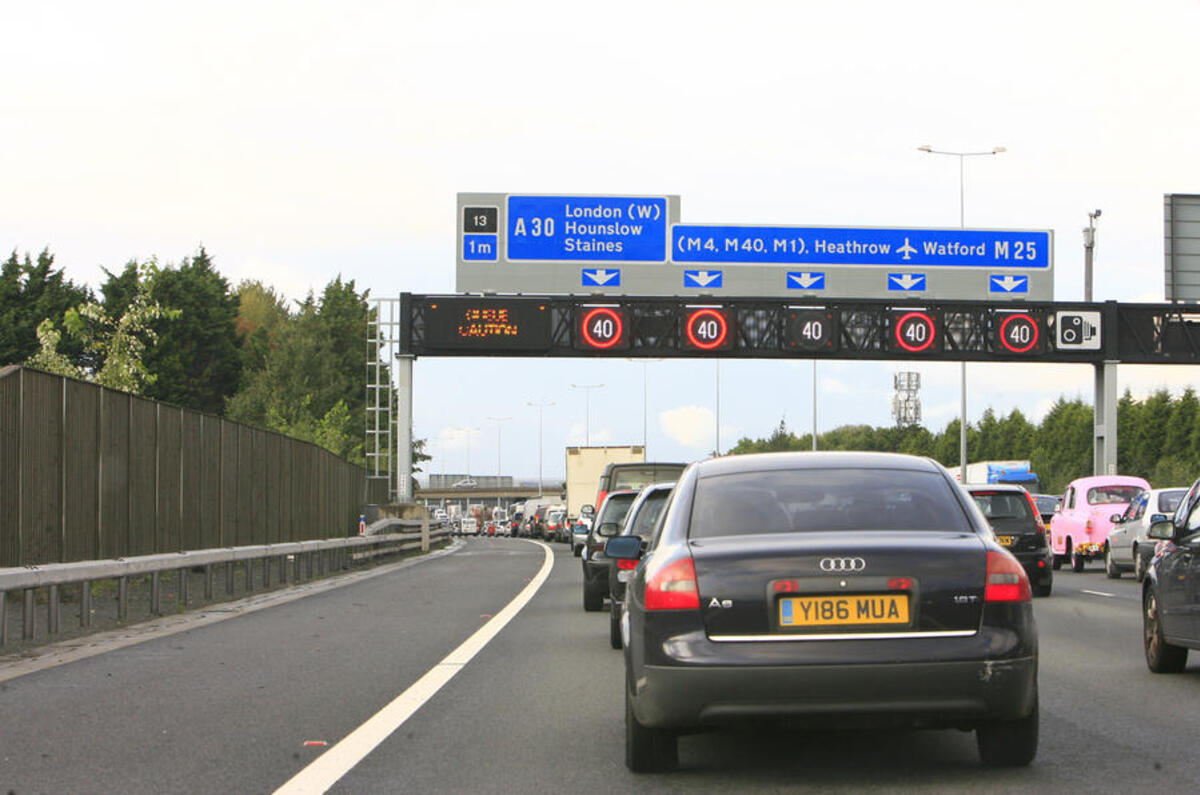Members of Parliament have launched a new investigation into the safety of smart motorways, after they were labelled an “ongoing risk of future deaths” by a coroner.
The inquiry has been launched by the Transport Committee following reports that there were 14 fatalities on stretches of smart motorway in 2019, up from 11 the previous year and five in 2017.
Smart motorways were first introduced in England in 2002, using technology to control speeds in order to manage flow and increase capacity on certain sections of road. Three different types are now used, including 'all lane running' (ALR) motorways, introduced in 2014, which allow the hard shoulder to be permanently used by all drivers.
A coroner recently referred Highways England to the Crown Prosecution Service to consider whether corporate manslaughter charges should be brought following the death of a woman on a stretch of the M1 in South Yorkshire in 2018.
The Transport Committee inquiry will consider the safety and benefits of smart motorways, including their impact on reducing congestion on the UK’s road network.
Huw Merriman MP, the chair of the Transport Committee, said: “The Department for Transport says smart motorways help us cope with a 23% rise in traffic since 2000, helping congestion. The department’s own Stocktake report points to lower fatal casualty rates for smart motorways without a permanent hard shoulder than on motorways with a hard shoulder. The serious casualty rate is slightly higher.
“This message isn’t reaching the public, whose confidence in smart motorways has been dented by increasing fatalities on these roads. Road safety charities are also expressing concerns. Will enhanced safety measures help? Will the public accept them following an awareness campaign? Or should there be a rethink of government policy?
“There are genuine worries about this element of the motorway network and we want to investigate how we got to this point.”
Transport secretary Grant Shapps produced the Stocktake report on smart motorways in March 2020, which included an 18-point plan to enhance their safety. Shapps has also admitted there have been flaws in the roll-out of smart motorways but ruled out their removal.
A Department for Transport spokesperson said Shapps has previously “expressed his concerns” over smart motorway safety and committed £500 million to spend on improvement. The DfT added that it welcomed the “important inquiry” and will provide written evidence.
READ MORE
Smart motorway review introduces 18 measures to boost safety
Nine Smart motorways get go-ahead despite safety concerns
Transport secretary highlights smart motorway flaws but rules out removal









Join the debate
Add your comment
The only way to make Smart Motorways safe is to permanently change the hard shoulder in to a lane. And add a hard shoulder to the road.
In other words, properly invest in roads and add extra capacity. A smooth running transport system includes cars because cars can get to people where other forms of public transport can not or are too inefficient.
It a very fine balancing act. More traffic means the need for wider roads, but without the land/space available being available, alternative ideas have to be considered. I am not sure what the answer is, but I think they are maybe proving not to be the best solution.
In Scotland, the only "smart" motorway that we have is a hard shoulder bus lane. If the traffic builds up, buses can use it, but with a speed limit of 40mph. I've rarely seen it used, but I genernally go the opposite direction of travel to it, as it is only on one side (M90 South toward the Forth Road Bridge).